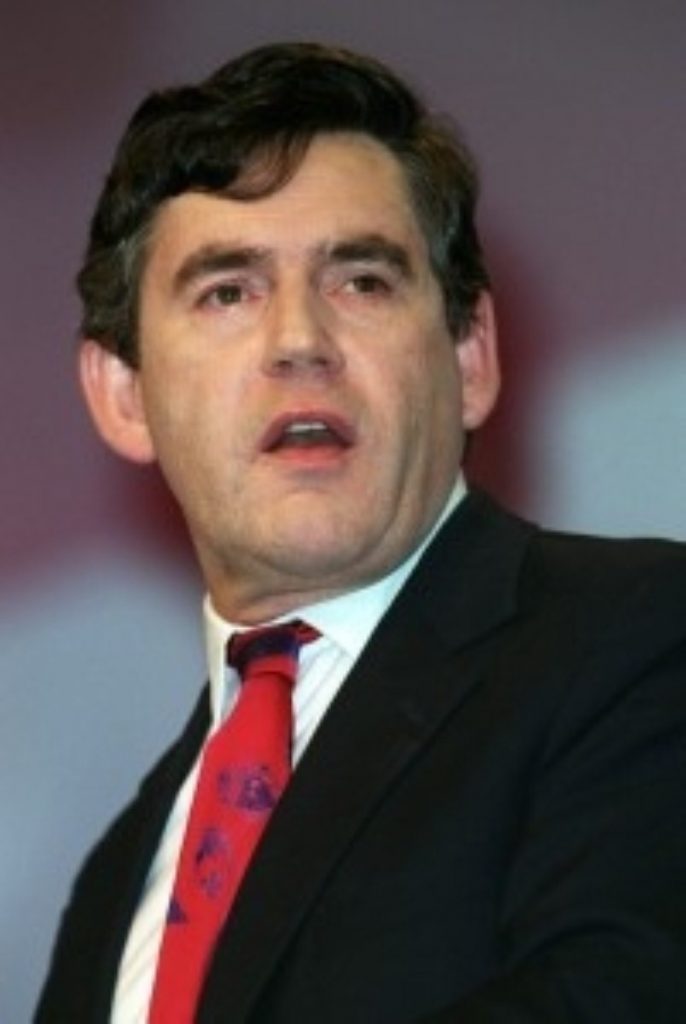Brown – Britain should imitate the US
Chancellor Gordon Brown today told business leaders that Britain should imitate the United States by building a shared national vision of itself as a country of “liberty, enterprise and opportunity for all”.
Such a national vision was essential to confront the challenges of globalisation, he said.
Speaking to the CBI annual conference in Birmingham, he attacked “the old short-termism and the old complacency”, saying Britain could not afford to postpone “fundamental long-term choices about our future”.
And he told those who wanted security before change: “There can be no security without change.”


He said long-term decisions needed “a consistency of purpose and direction in the British national interest”.
The Chancellor said the most fundamental question was how to build a shared national economic purpose, which he called “a patriotic vision – shared by the British people – of Britain’s economic destiny as a nation of aspiration and ambition”.
Both domestic and overseas counterparts accompany Mr Brown on day two of the conference. Oliver Letwin, Conservative Shadow Chancellor, and Vincent Cable, Liberal Democrat economics spokesman, will take part in panel sessions today alongside Trade and Industry Secretary Patricia Hewitt and CBI director general Digby Jones.
The French Finance Minister Nicolas Sarkozy, who is expected to be a contender for the next presidential election in 2007, is also due to address the conference.
A country which has just faced a presidential election, America, was held up by Mr Brown as somewhere that faced the challenge of globalisation “with a strong sense of itself as a country of liberty, enterprise and opportunity for all”.
He added: “I believe that working together, we can here in Britain forge a shared British economic purpose that, embracing all sections and regions and national of Britain, can give us … the long-term direction and determination to make the difficult choices about priorities in a global age and summon our great country to greater achievements in the future.”
Stability and making cautious choices even in times of plenty were central to this vision and success, he said, promising “stability yesterday, stability today, stability tomorrow”.
Britain also needed to build an enterprise culture, which the Government was encouraging through lower capital gains tax, enterprise education in schools and making planning easier and more responsive to business.
Science investment in Britain had been lower than in other countries, and Britain had to remove the cultural, financial and regulatory barriers to investment so that it became a country where scientific invention was valued and celebrated – “the best place in the world for scientific enquiry and for R&D”.
That meant scientists had to be protected from “constant attack” from animal rights activists if they were pursuing “legitimate science”, he added.
Mr Brown also criticised European regulations that added to the burden on business such as the agency workers directive and the working time directive.











